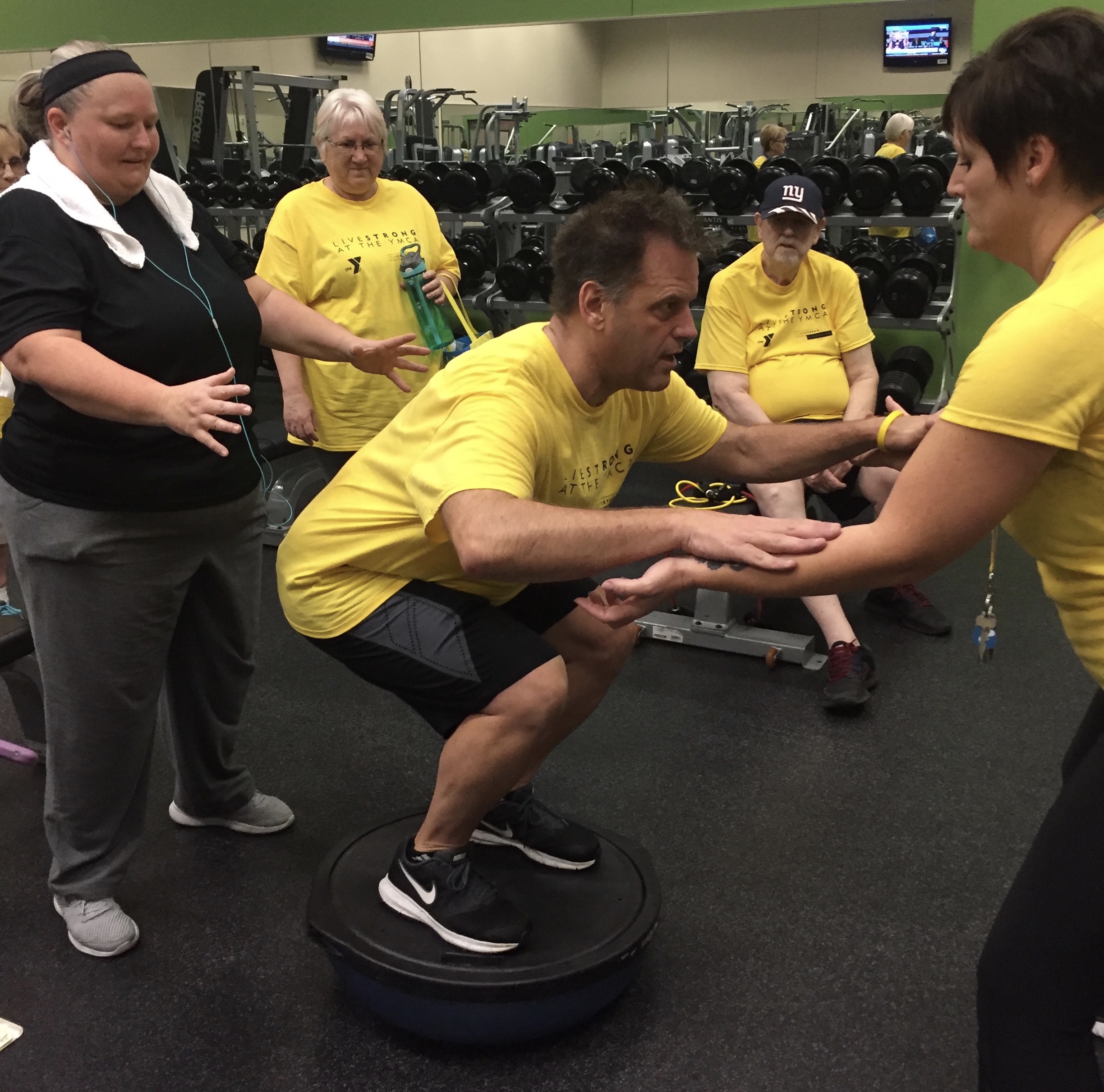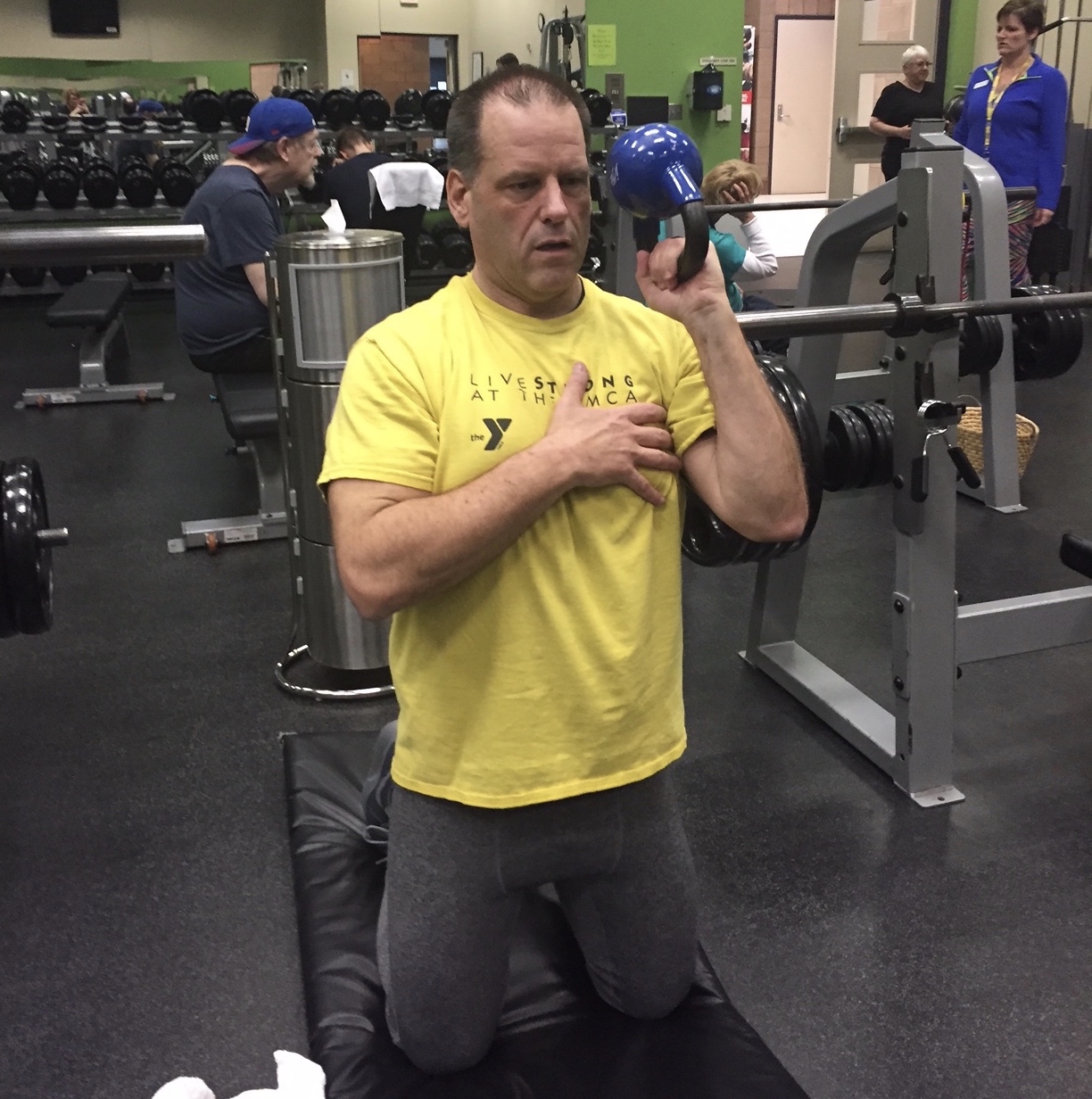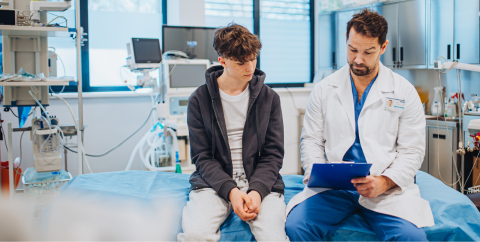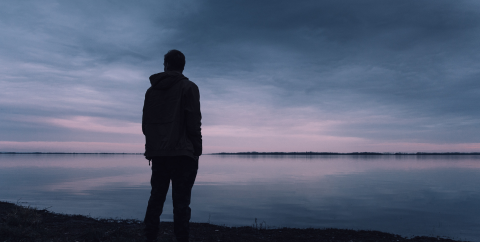Reclaiming Health with LIVESTRONG at the Y
06 June, 2017
June 4 is National Cancer Survivors Day, an opportunity to focus on celebrating the many cancer survivors, recognizing the abundance of life after cancer, and promoting quality of life for anyone diagnosed with cancer. We’re using the day to kick off a full month of posts and information about cancer survivorship, starting with LIVESTRONG at the Y.
First, Michael Wranick shares his LIVESTRONG at the Y story. Scroll down after Michael’s story to read more about the LIVESTRONG at the Y program.
I was stage 4 bladder cancer. I was considered “statistically terminal.” I did chemo, had surgery, then six months of chemo post-surgery. They removed my bladder and rebuilt an internal pouch from my bowels. It’s amazing. However, I have many post-cancer challenges and am on 100 percent disability. I access the Y via the Silver Sneakers Program via Medicare - which is rare for a person my age. I was struggling physically, but I enjoyed having something to focus on, and frankly, having something to help motivate me to just get up and out of the house. I saw a poster for LIVESTRONG and I contacted the team immediately and joined the group of five other participants.
 Physically, I knew I was probably more advanced than the group. I wanted others to know that there was light at the end of the tunnel, that progress is not just about measuring results but in feeling better and feeling connected. I wanted people to know that what they see today is NOWHERE close to where I was a year ago, two years ago even less. Physical progress, while important, was slower than mental progress. Mental progress was just as important.
Physically, I knew I was probably more advanced than the group. I wanted others to know that there was light at the end of the tunnel, that progress is not just about measuring results but in feeling better and feeling connected. I wanted people to know that what they see today is NOWHERE close to where I was a year ago, two years ago even less. Physical progress, while important, was slower than mental progress. Mental progress was just as important.
Turns out I wasn’t much different from the others; we all had some things we were better at than others. Through the program we were exposed to so many newer forms of exercises, techniques, the importance of breathing and balance issues. Mentally / socially, it’s been so rewarding to interact with and share this experience with the other survivors, hear their stories, understand their fight, and feel their pain. It’s hard to explain, but we were all connected. For the first time in a while, we felt connected to a community.
I came into the program with good muscularity, a decent physique for my age, and average overall body strength considering the devastating impact of the cancer and surgery. But I was not fit, had no sense of balance, and felt pain every day. Use of my hands and feet were compromised, a consequence of the heavy chemotherapy regimen I had endured. Life was a series of days where the glass was half empty. But now, I literally feel healthier. I physically can see improvement in my flexibility and overall fitness. I don’t need to be a body builder. I need to sleep better, and be a better husband. I feel I’m pointed in the right direction now.
The LIVESTRONG Program exposes the participants to many of the different classes and exercise help that are available at the Y. We did a few introductory Yoga classes. I had never in my entire life ever considered a Yoga class, and if not for the program and the tremendous personalized instruction for my physical limitations, I never would have ever tried a class. Now, my wife and I take advantage of Yoga classes offered at the Y, and the time together is something I look forward to and value highly.
 I and the others all agree the Program was more than we considered was possible, and we all genuinely feel connected to all the people who were involved. The Y is a part of our lives in a different way, at a deeper level, and I believe it grew from the humanity and caring physical instruction we received from the trainers and leadership. I hope to remain connected to the Y, and specifically the LIVESTRONG Program, for a long, healthy time.
I and the others all agree the Program was more than we considered was possible, and we all genuinely feel connected to all the people who were involved. The Y is a part of our lives in a different way, at a deeper level, and I believe it grew from the humanity and caring physical instruction we received from the trainers and leadership. I hope to remain connected to the Y, and specifically the LIVESTRONG Program, for a long, healthy time.
About LIVESTRONG at the Y
LIVESTRONG at the Y is a FREE cancer survivorship program in partnership with the LIVESTRONG foundation and YMCA. Nevada’s first offering of the program was in October 2016 at YMCA of Southern Nevada. It was first offered by YMCA in 2007 and has since been rolled out in 42 states and 240 YMCA’s nationwide, and has served 40,000 survivors.
It’s specifically designed to help adult survivors regain and reclaim their health post-treatment. The program is 12 weeks in length and the participants meet twice weekly for 90 minutes. Evidenced-based outcomes of the program include building muscle mass and strength, increasing flexibility and endurance, all while improving confidence and self-esteem. Other benefits include decreased side effect severity and cancer-related fatigue.
LIVESTRONG at the Y focuses on the whole person, not the disease. Y Staff have been specially trained to work with cancer survivors and patients by following the American College of Sports Medicine and American Cancer Society Exercise Guidelines. Most of us have been touched by cancer, either personally, or through a loved one. LIVESTRONG at the Y encourages a warm spirit of community and a safe space for building companionship with others who have also been affected by this disease.
The LIVESTRONG program is a part of the Y’s model of Community Integrated Health (CIH) to improve the health and well-being of all. Through the CIH model the YMCA is building capacity to offer evidence-based chronic disease prevention services, build equity in the community, collaborate with local partners, assist individuals in navigating health choices, share physical spaces with other health care resources, and comply with health regulations. Other YMCA evidence-based programs include those for diabetes prevention, arthritis self-management, childhood obesity intervention, and tobacco cessation, to name a few.
Contact Brianna Barber at the Durango Hills Community Center YMCA for more information on LIVESTRONG at the Y in Las Vegas.
You May Also Like

Survivorship care plans linked to better long-term outcomes for childhood cancer survivors
11.07.2025
Thanks to advances in treatment, more children are surviving cancer than ever before — with nearly 580,000 childhood cancer survivors expected to

Patient Navigation Training Now Offered in Spanish
10.29.2025
The GW Cancer Center launched a fully translated Spanish version of the free on-demand course titled

Feeling like a ghost? You’re not alone.
01.09.2025
Have you heard of “cancer ghosting”?